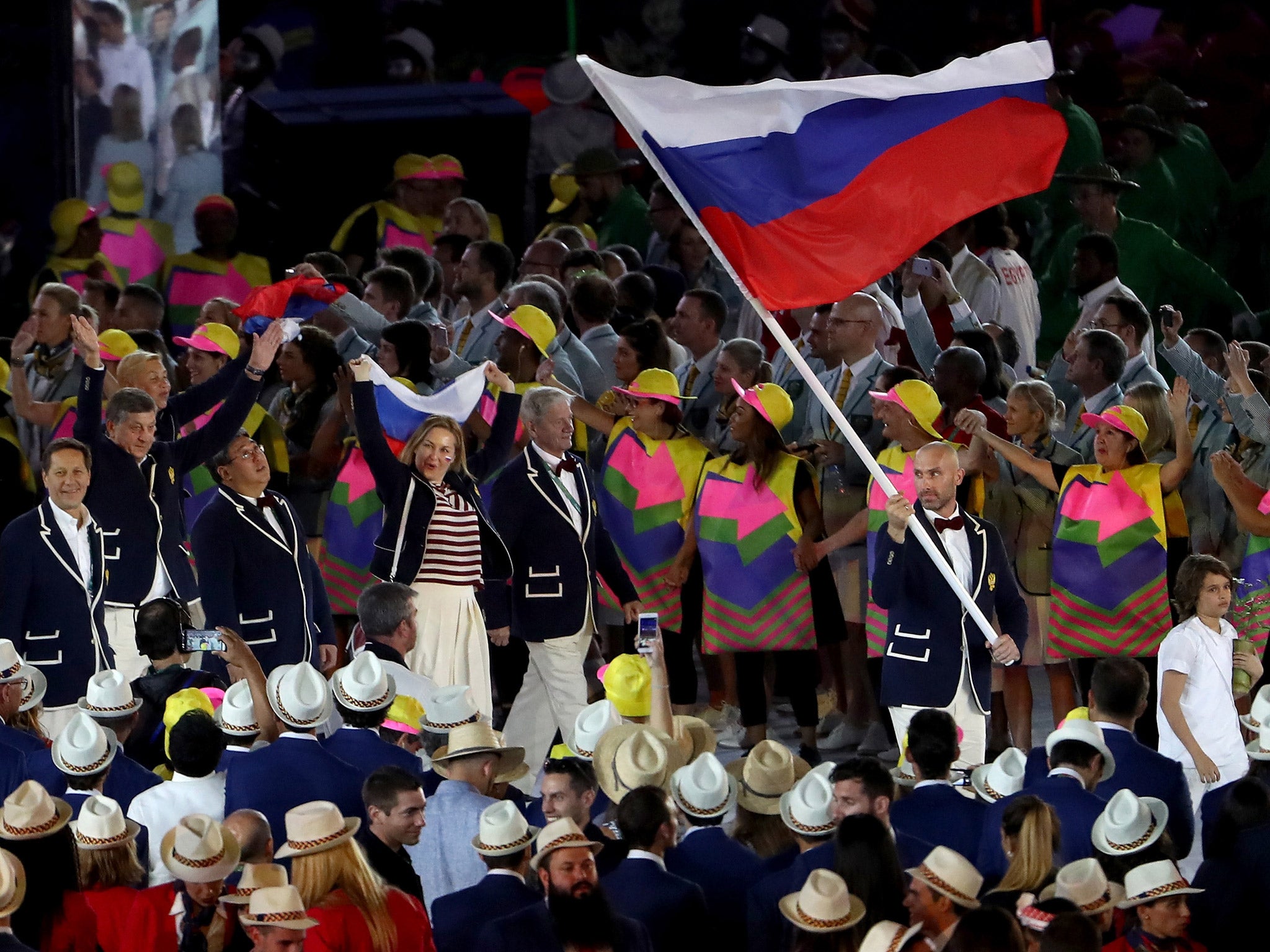Rio 2016: Russia given Paralympics ban as 'medals over morals attitude' leaves president Philip Craven disgusted
Russia has been banned from the Paralympics, but will appeal the decision to the Court of Arbitration for Sport

Your support helps us to tell the story
From reproductive rights to climate change to Big Tech, The Independent is on the ground when the story is developing. Whether it's investigating the financials of Elon Musk's pro-Trump PAC or producing our latest documentary, 'The A Word', which shines a light on the American women fighting for reproductive rights, we know how important it is to parse out the facts from the messaging.
At such a critical moment in US history, we need reporters on the ground. Your donation allows us to keep sending journalists to speak to both sides of the story.
The Independent is trusted by Americans across the entire political spectrum. And unlike many other quality news outlets, we choose not to lock Americans out of our reporting and analysis with paywalls. We believe quality journalism should be available to everyone, paid for by those who can afford it.
Your support makes all the difference.All Russian athletes have been banned from the Paralympic Games, whose organisers on Sunday launched an eviscerating attack on the country’s ‘disgusting’ and ‘abhorrent’ state-sponsored doping regime
In a move which calls into question the International Olympic Committee’s (IOC) unwillingness to issue a blanket ban on Russians, the International Paralympic Committee (IPC) revealed that it had secured an additional ten suspect swapped Russian Paralympic urine samples – taking the total to 45, involving 44 athletes, with more expected.
The Russian Government had “catastrophically failed its athletes,” the IPC president Philip Craven said, as he announced the ban. “The medals over morals attitude disgusts me.”
The Russians will appeal the IPC ban to the Court for Arbitration in Sport, who have already upheld a blanket ban imposed by athletics’ governing body – the IAAF, Russia sport minister Vitaly Mutko told the TASS news agency. The Paralympic governing body said that if CAS upholds any appeal then the Russians will be back in.
Craven was asked to explain why, despite his strong personal stance on Russia, he had not challenged the IOC’s decision not to impose a ban, in his position as a member. “I have to back my board," he said, claiming he had not been “diametrically opposed” to the board’s decision and that the Paralympic situation was “very different.”
But despite that unconvincing answer, Lancastrian Craven – a former Paralympic wheelchair, swimming and athletics competitor – took the fight against the organised Russian cheating onto the front foot, dismissing the suggestion that clean athletes must not be punished for the system.
In what represents a hugely significant moment for the Paralympian movement and the fight against the organised Russian cheating, 66-year-old Craven said: “This is not about individuals or individual sports. This is about a state sponsored doping system. This is not about athletes cheating the system but the state run system that is cheating athletes.
“There is a great, great threat to world sport; to what we would view as the sporting spirit, that cannot be allowed to change. [A threat to] fair competition, fair play, abiding by the rules. If we slacken off on that, we are finished, and we're not going to.
“The facts really do hurt. They are an unprecedented attack on every clean athlete"
It is our responsibility to ensure fair competition. That is vital to the integrity and credibility of Paralympic sport."
Asked if he understood the disparity between the IOC and IPC’s stance, Craven said: “Of course I understand where you’re coming from. I’m not stupid.”
The IPC’s determination to undertake a detailed, objective investigation of McLaren’s findings contrasts with the IOC, which did not even consult McLaren before deciding against a blanket ban. The IPC invited Vladimir Lukin, the president of the Russian Paralympic Committee (RPC), to lead a seven-person Russian delegation to its HQ in Bonn, last Wednesday, and provide a three-hour explanation. The IPC board then discussed that interview for two hours and 50 minutes.
It was unanimous in its verdict that the RPC was unable to ensure drug-testing compliance ahead of the Rio Paralympics, which run from September 7 to 18. The IPC will investigate a further 18 cases of alleged Sochi swapped samples which McLaren found were part of a malign, highly organised system to prevent Russia suffering the embarrassment of a low medals haul at its home Games.
Craven said he may have to revise his view that the Sochi Games were the best ever Para Winter Olympics, though he said he could not be sure that Putin had supervised the cheating.
With no-one from the RPC in Rio, the organisation is expected to respond with a press conference in Moscow on Monday. But the international sporting community responded with support for the stance the IPC have taken.
The British Paralympic Association (BPA) said that the IPC had taken a “bold” decision and that they wanted to “congratulate” them for it. “While we have sympathy with those individual Russian Paralympians… who train and compete clean, it is crucial for the integrity of our sport… that the playing field is level,” the BPA said. “We congratulate the IPC on taking a clear stance based on the evidence provided to the McLaren report and their own subsequent investigation.”
Join our commenting forum
Join thought-provoking conversations, follow other Independent readers and see their replies
Comments